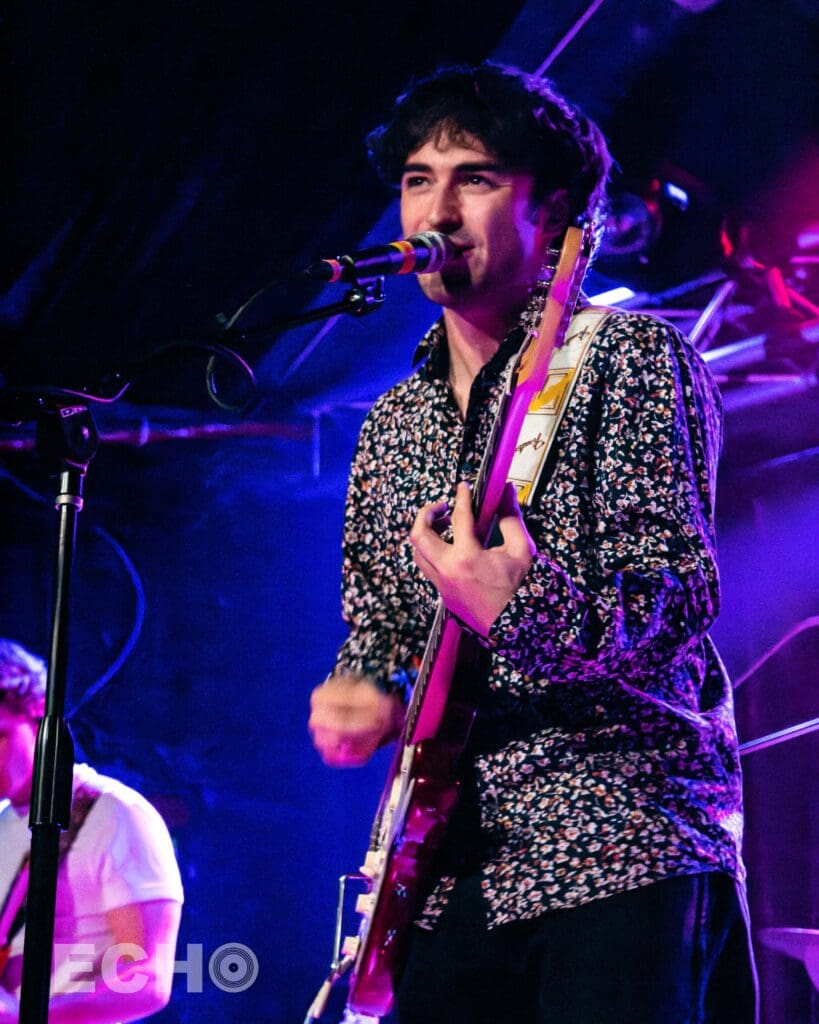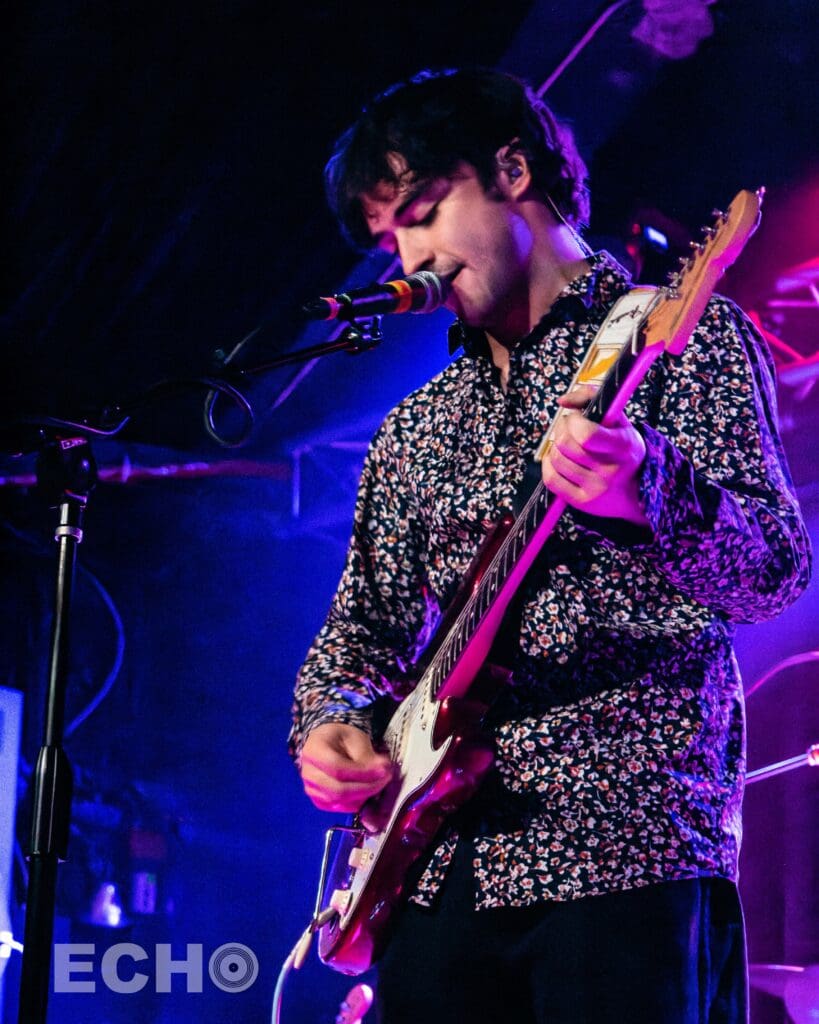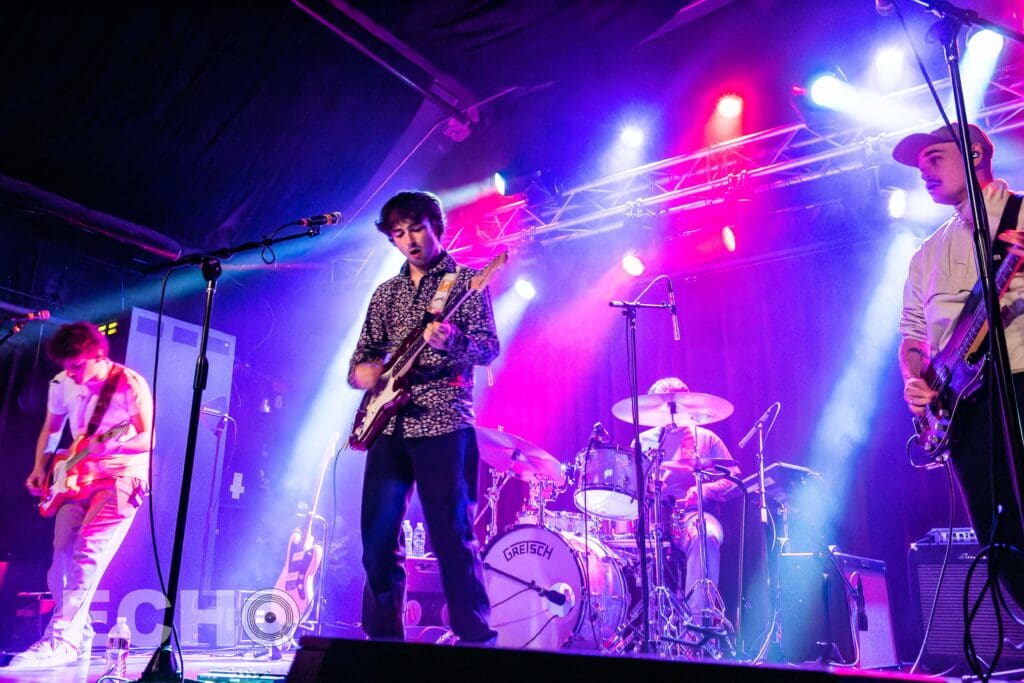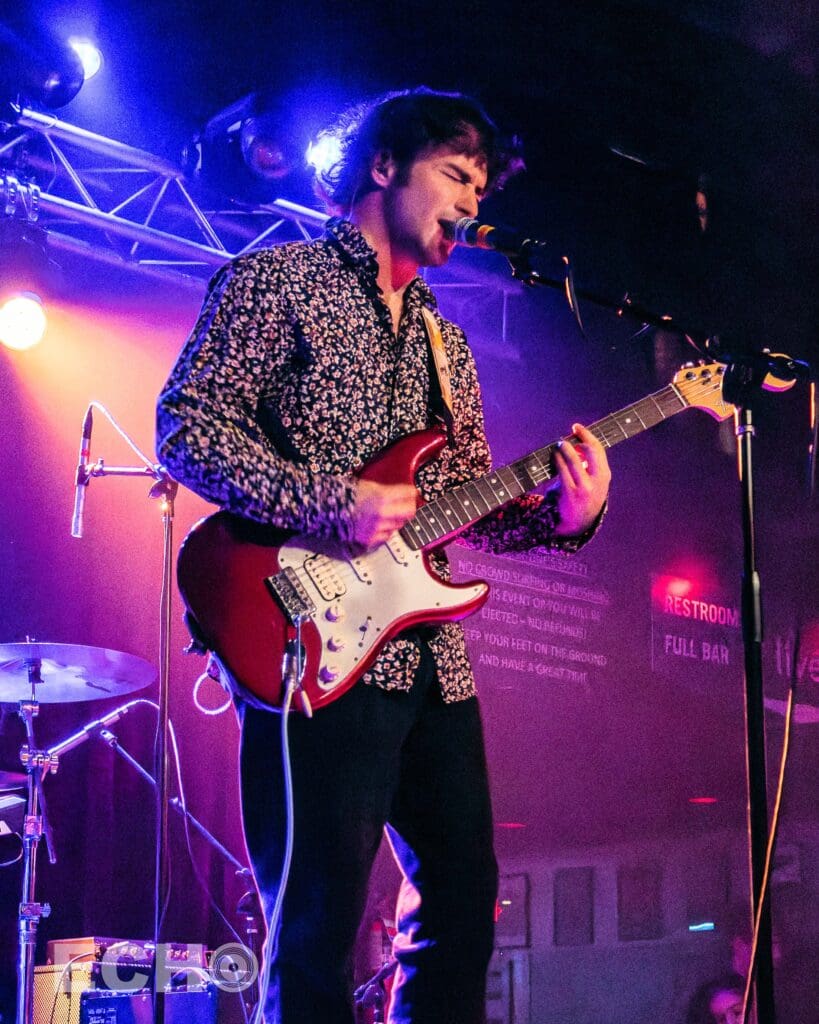
On October 14, 2024, Alfie Templeman brought his infectious indie-pop sound to Boston’s Brighton Music Hall for an unforgettable headline show. Templeman, known for his captivating blend of 80s-inspired pop and indie-rock, had the audience hooked from the moment he took the stage. His setlist, which featured fan favorites like “Obvious Guy” and “3D Feelings,” had the crowd jumping and singing along throughout the night. The energy in the room was palpable, and Templeman’s band, made up of longtime collaborators, added to the dynamic atmosphere with their tight performance.

The night started with Templeman took over. The mix of upbeat tracks and deeper moments, such as the emotionally charged “Leaving Today,” highlighted Templeman’s versatility as a musician. The lighting and venue setup ensured a perfect view from every angle, enhancing the experience for the packed crowd. By the time the encore arrived, Templeman’s Boston audience was fully immersed, with the show closing on a high note with “Happiness in Liquid Form,” leaving fans eager for more. We caught up with Aflie before the show at the venue. Read our interview with him below.

How have you been?
I’ve been so good! Am I supposed to talk into this like this? Oh, perfect! Yeah, I’ve been great.
Let’s start with your new album. Your last one had an upbeat, sunny vibe, but this one feels different. How did you approach producing the songs?
It was definitely a fresh start. I put aside everything I did on Mellow Moon and just started over. This time, I wanted to focus less on production and more on songwriting. Growing up, I’d listen to the production of songs first, and if a song stuck in my head, I’d figure it was good. So, I reversed that process and started with the lyrics. I made sure the choruses hit melodically, simplified the lyrics while making them meaningful, and made sure each song had a reason for existing, a story behind it. This approach took a lot longer, but it was worth it.
Did you record with a band, or was it mostly you?
No, I played all the instruments myself. I’ve always done that. I grew up teaching myself how to play. My dad had guitars at home, but they were left-handed, so I messed around with them until I got my own. I learned drums with lessons as a kid, picked up bass, and just figured out synths and production through trial and error on a laptop.
One of the major changes on this album is your collaboration with Nile Rodgers. How did that come about?
That came through a track I released a few years ago called Broken. I was doing an interview on BBC Radio 1, and I mentioned how much I loved Nile Rodgers. He heard it somehow and tweeted at me, inviting me to Abbey Road. We met, hung out, and eventually, we worked together on a song. I showed him this riff I had written years ago, and thankfully, he liked it.
How was it collaborating with someone else after producing so independently?
It was great. I had reached a point where I felt limited in what I could do production-wise. I was working from a laptop, using the same sounds in Logic Pro. Collaborating with Nile Rodgers opened up new possibilities and let me experiment with fresh ideas.
You’ve mentioned Dan Carey encouraged you to embrace imperfections. Was there a moment in this album where that stood out to you?
Definitely the last track, Run to Tomorrow. It was the final thing I recorded for the album, and I wasn’t in a great place when I did the vocals—feeling tired, not sleeping well. Dan told me to just go for it anyway. We did one or two takes, and I left the studio feeling unsure. But when I heard the mixed version later, I realized it wasn’t perfect, but it had a real, natural feel to it, which was exactly what the song needed.
Your music incorporates so many unique sounds. Some people describe it as “hypnagogic pop.” Do you resonate with that label?
Yeah, I think it’s called “hypnagogic pop,” but I draw a lot of influence from artists like Panda Bear and Cindy Lee. Cindy Lee’s Diamond Jubilee album is wild, with layers that incorporate non-musical sounds, like kids playing in a park, which creates a really psychedelic vibe. That kind of acid music fascinates me, and I want to explore that even more.
After this tour, what’s next for you in terms of music?
Last month, I challenged myself to record a mini album in a month, and I ended up recording 13 songs. So, I’ll be working on that in between touring and mixing. Hopefully, I’ll release that next year, maybe even put out a live album, considering how great these shows have been.
Your music often touches on navigating anxiety and personal growth. How has moving to London influenced your sound?
Moving to London from a small house in the countryside was a huge shift. I went from creating music just for myself to being surrounded by so much creativity. The bar is so high here, so I pushed myself musically and lyrically. There’s just so much to take in, and it all influenced the music. LA had a similar effect when I spent time there recording part of the album—it’s just a constant stream of inspiration.
Last question—if you could listen to one album in a sensory deprivation chamber, what would it be?
That’s a tough one! I think I’d go with Shisha—you know, those albums that are super chill, like a laid-back experience. It’s such a calming vibe.
